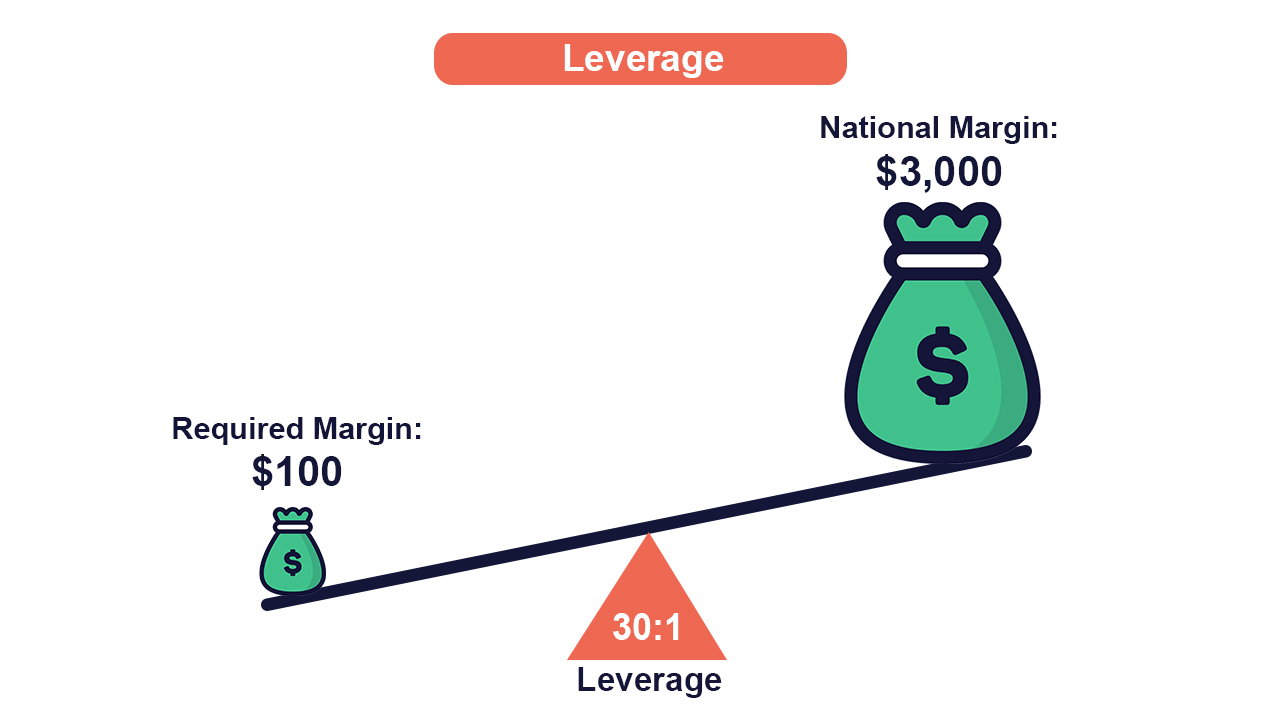
Trading the financial markets can be a difficult task to wrap your head around. There are a lot of techniques and tools that you can use to make more money. Leverage is one of those tools.
With major financial regulators throughout Europe, Singapore and now Australia tightening the level of leverage brokers can offer when trading Forex and CFDs, now is a good time to look what exactly leverage is and how it impacts Nigerian traders.
What is Leverage
Leverage involves using borrowed money to enhance the trade that you have on. It increases the users’ buying power, thereby increasing the potential returns when trading is successful. However, Leverage can also amplify the potential losses when price movements are unfavourable and its misuse is one of the most common mistakes beginner traders make.
Suppose you have a $1000 trading account, and you buy a stock priced at $10 with a leverage of 100:1. That $10 stock, after adjusting for leverage, is actually worth $1000. Now imagine what happens when that stock price decreases by 20%. The value of your holding, after leverage is now only worth $800, i.e. a decrease of $200. This means that your $1000 account is now worth only $800. In contrast, should the stock value increase by 20%, this would result in an increase of $200 to your account, resulting in an account now worth $1200.
Leverage can be used for other purposes other than trading as well. Companies can use leverage to get a loan or raise capital for their long-term operations. By leveraging the value of assets a company holds, they can get a loan to increase the scaling of operations. Suppose we have Company A valued at $2 million and Company B valued at $100,000. Both companies are looking to get a loan for $1 million. It is much easier for Company A to get that loan because they can leverage their assets and are therefore more likely to be able to pay it back when compared to Company B.
Why regulators are tightening leverage?
The Australian Securities and Investments Commission (ASIC) recently change their leverage requirements in line with European regulators. Leverage for major forex CFD pairs is now up to 30:1 and 20:1 for minors and exotics, a far cry from the 500:1 previously available. The Singapore regulator is even tighter with 20:1 for all pairs. on major foreign exchange CFD pairs.
Justin Grossbard of Compare Forex Brokers explains that through March and April 2020, ASIC found that most retail traders lose money, with some 15,000 trader’s account falling into negative balance totalling 10.09m AUD (3,157,453,685.00 NGN). According to Justin Grossbard, retail traders are more vulnerable than professional traders as they lack trading experience and have less income to cope with such losses.
This is not to say professional traders can’t make large losses. Investment firm Archegos Capital recently lost $20 billion in 2 days. It is common practice for hedge funds to use leverage of 2:1 for the type of strategies that Archegos was using, but Archegos was using up to a 5:1 leverage and hiding it through equity swaps.
Leverage in Nigeria
Justin believes that while there are some Forex Brokers with high leverage offering services to Nigerian traders, as high as 2000:1, it can prudent for Nigerian traders to follow the lead of regulators in other major markets and limit their use of leverage to 30:1. Regulators are tightening leverage to protect traders from crippling losses with good reason and the risk/reward of high leverage in the pursuit of large profits is too high.



